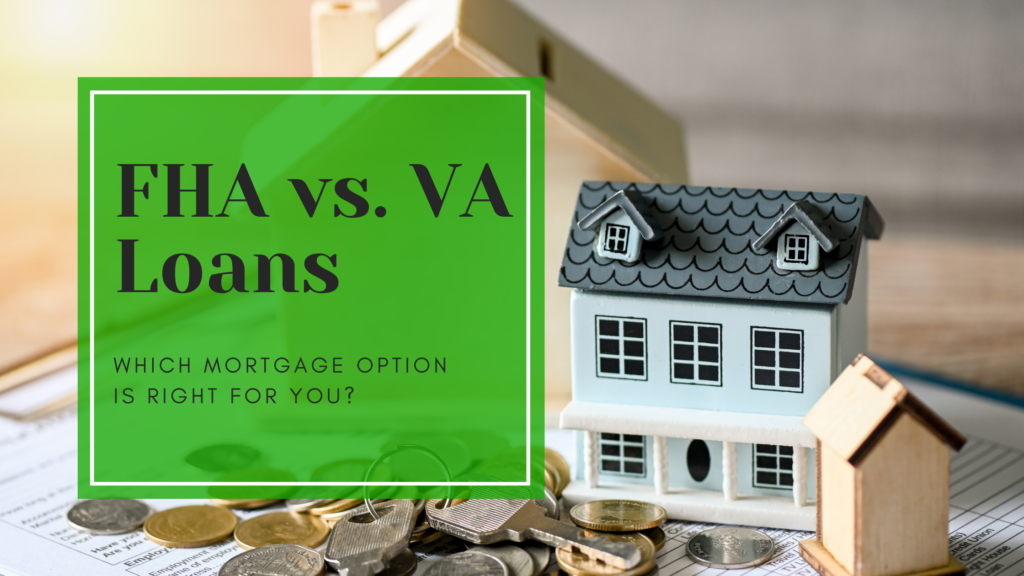Introduction:
Choosing the right mortgage option is a crucial decision in the homebuying journey. FHA and VA loans are two popular choices, each with its unique features. In this guide, we’ll explore the distinctions between FHA and VA loans to help you determine the best fit for your homeownership goals.
Reminder: When learning about Loan Types, you should consult a Licensed Loan Officer, find a local Loan Officer in you area here!

Understanding FHA Loans:
FHA loans, backed by the Federal Housing Administration, are known for their accessibility and lower down payment requirements. Ideal for first-time homebuyers, these loans offer a government-backed safety net for lenders, making homeownership more achievable.
Key Aspects of FHA Loans:
- Down Payment Requirements:
- One of the defining features of FHA loans is the lower down payment requirement, typically as low as 3.5%. This makes homeownership more accessible for those with limited funds for a down payment.
- Credit Score Considerations:
- While FHA loans are generally more lenient on credit score requirements, a lower credit score may result in a slightly higher interest rate. Understanding this trade-off is essential for prospective buyers.
Exploring VA Loans:
VA loans, guaranteed by the Department of Veterans Affairs, are designed to assist eligible service members, veterans, and their spouses in achieving homeownership. These loans often come with favorable terms and require no down payment.
Key Aspects of VA Loans:
- No Down Payment Requirement:
- A notable advantage of VA loans is the absence of a down payment requirement. Eligible veterans and service members can secure a mortgage without the financial burden of a traditional down payment.
- Funding Fee Considerations:
- While VA loans eliminate the need for a down payment, there is a funding fee associated with these loans. Understanding how this fee works and its impact on overall loan costs is crucial for informed decision-making.
Comparing FHA and VA Loans:
- Eligibility Criteria:
- FHA and VA loans have distinct eligibility criteria. FHA loans are open to a broader range of borrowers, while VA loans are specifically reserved for veterans, service members, and their spouses. Understanding your eligibility is essential in determining the right fit.
- Loan Limits:
- Both types of loans have loan limits, but these limits vary. FHA loan limits are set by county, while VA loan limits consider factors like location and entitlement. Knowing these limits helps in assessing the loan amounts available to you.
Conclusion:
In the decision between FHA and VA loans, understanding the nuances of each option is vital. Whether you value the accessibility of FHA loans or the benefits offered by VA loans, making an informed decision aligns you with the mortgage option that best suits your homeownership aspirations.
Disclaimer: This guide is intended for informational purposes only and should not replace professional advice. Consult with a qualified mortgage advisor to determine the best mortgage option for your specific situation.

